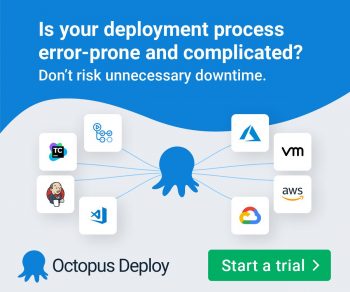Is there a secret sauce to a successful startup? What is the definition of a successful startup? Every business goes through a plethora of questions at every stage. A profitable and thriving startup does not solely mean booming sales and increasing profits year on year, it is a culmination of customer satisfaction, business operations, sales, and marketing strategies, finance and revenue outcomes, administration, and so on. It is a constant process from ideation to execution that keeps growing as the business grows.
It is pivotal to have a complete view of the organization irrespective of the size to scale it successfully every year by adding value to the consumer and the business. Customer relationship management (CRM) is known to have a transformational effect on the success of any startup, a small and mid-sized company, or a trillion-dollar empire.
Laying a solid CRM foundation can help you stand out from the crowd at a time when startups are growing with fierce competition and top-notch innovation. This could assist you in creating a robust sales system, automating your marketing initiatives, providing the most incredible possible customer service and assistance for your clients, and much more. You can gain a 360-degree perspective of your customers and business with personalized reports and dashboards.
There is a myriad of CRM companies in the world, but one company that has proved exceptionally notable throughout the years’ is Salesforce. In the world of CRM, Salesforce is known as the numero uno (number one) CRM company globally. With each customer, Salesforce aspires to develop a personal relationship. To keep your company operating, you can turn to its extensive industry-specific expertise for guidance with any pressing problems or technological challenges. By streamlining essential account management operations like quoting, cross-selling, and up-selling, Salesforce enables businesses to place their customers at the heart of everything they do.
What is an ideal way of implementing salesforce in your startup?
Salesforce, the number one CRM comes with a hefty price tag along with the value it brings. For startups, Salesforce is a big investment. Therefore, it is wise to make the best use of it. Here’s how you do it;
- Have a clear vision for your startup and define specific goals for CRM
Starting a business can sound both ambitious and challenging, so it becomes extremely vital to set peculiar short-term, long-term, and SMART (Specific, Measurable, Achievable, Relevant, Timely) goals that will allow laying a strong foundation of Salesforce architecture. Setting clear goals for what Startups want to accomplish with Salesforce will empower them to maximize their Salesforce investment while also increasing team productivity. The blueprint should be created keeping in mind business operations, end users, business executives, stakeholders, and the in-house team. Moreover, the action plan and roadmap should always align with the set goals. When executed correctly, this vision serves as the guiding light for every unit involved in the process allowing you to move quickly toward your end goal.
- Gather all the relevant data from the get-go
Data has power and it is everything when it comes to implementing Salesforce. Salesforce comes with an inbuilt ability to congregate all your data in one place by integrating all your systems at once. It will help you spot the market trends, competitors, and problem statements and give you an edge in finding the right questions and opportunities. Data-driven decisions are vital in laying a strong foundation for the success of your business.
- Have an implementation timeline
A project timeline benefits everyone working on the project by providing a plan of where you are and where you should be at every phase especially when you are heavily invested in Salesforce CRM. Divide the entire process into smaller milestones. These milestones include everything from planning, strategizing, designing, developing, testing, and deployment. It is crucial to follow these timeline-dependent tasks for a glitch-free and seamless functioning of the process.
- Find the right expertise for the implementation
Finding the right resources plays a huge role in adding to the success of your project. You have three options; one is to train the in-house team from the ground up so they know all the nitty-gritty of the project and the implementation. The second is to hire an exemplary Salesforce Consultant who can take over the entire project and train the team so that everyone is on the same page. The third is the combination of both training an in-house admin and collaborating with a seasoned Salesforce partner for custom and personalized developments.
- Post-implementation follow-up and updation
Once the implementation is completed successfully, post-implementation services, and follow-ups are paramount in determining the success and the scale of the business. Salesforce CRM in itself is a stimulating platform to understand and work with. Having the perfect and right guidance by your side is a critical component that makes sure all the operations are going smoothly, the glitches are troubleshot timely, and end users have a seamless experience.
Thrice every year Salesforce releases new updates and features to stay at the forefront of innovation and to stay ahead of the competition. Make sure to keep your Salesforce instance up to date with the latest release features to make the most of it.
These are the best Salesforce implementation practices that any startup, SMB, or heavy operations business can follow and carve a niche for itself in the industry.
Mani Anand
Founder and CEO of Apphienz
Mani Anand has been in the Salesforce ecosystem for over two decades. She has been a pioneer in transforming several startups, SMBs, and nonprofits by harnessing the power of Salesforce CRM. She initially started her journey with salesforce, and after working with several Fortune 500 companies she finally decided to start her venture as a Salesforce Partner. Currently, she is heading a successful Salesforce Consulting company in two different geographies across the globe, USA and India.

















